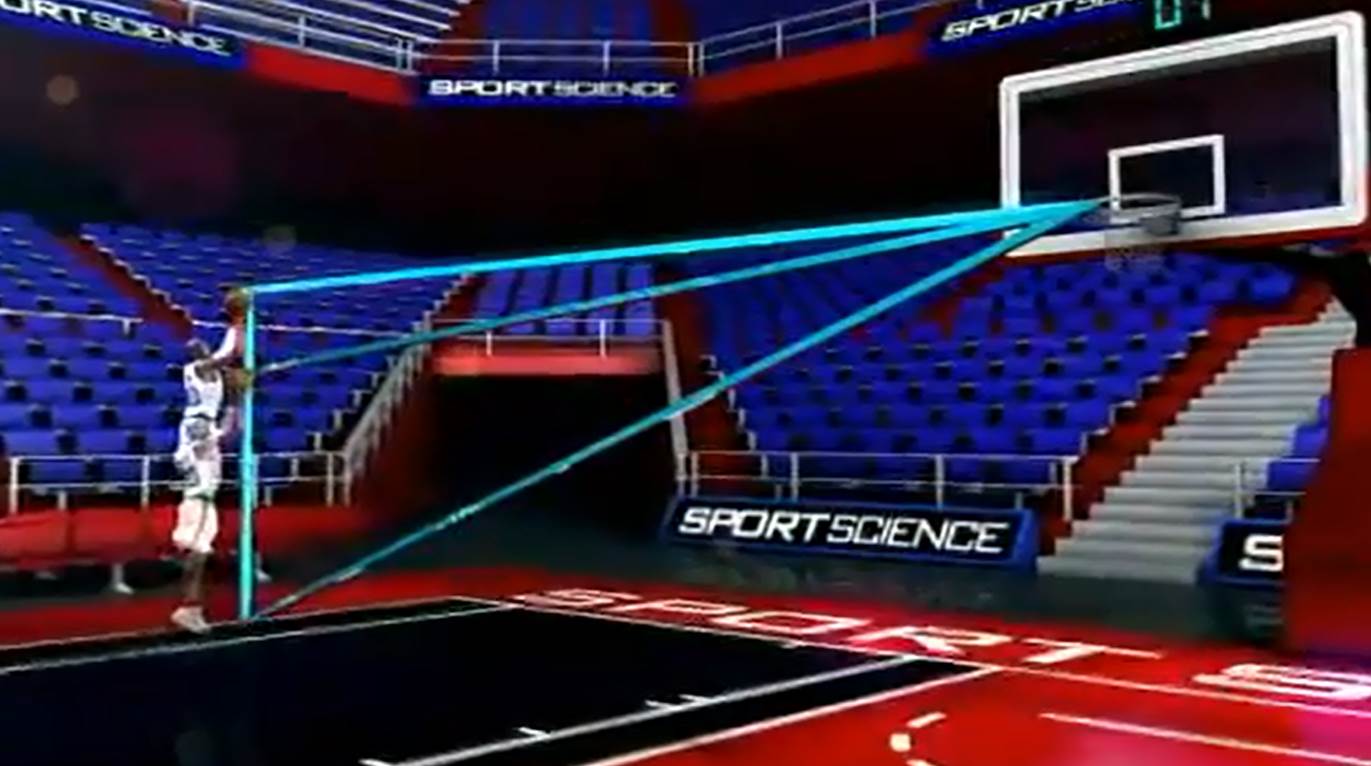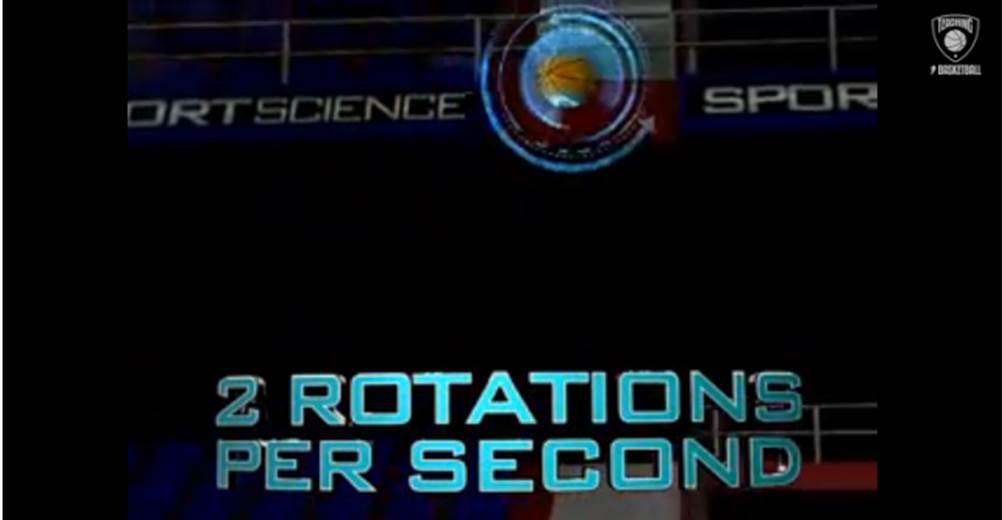Launch
Angle
Simply put, a basketball shot is
simple projectile motion, a force,
the shooter, is acting upon
and object to move it a long a parabolic
flight path towards
the basket. Thru research and experience,
it is found that the ideal
launch angle
when the ball is released is somewhere
around
48°
*The launch angle
is key
because
it allows for the
best trajectory
path for the ball towards
the basket*

http://www.youtube.com/watch?v=Ds7O4rGy_Qs
|
Release Point
For the best accuracy and the ability to
consistently make shots, where
the shooter releases the ball has
to
be on a plane that is as close to parallel
with the basket.
http://www.youtube.com/watch?v=Ds7O4rGy_Qs

By aligning the
ball in a parallel plane with the hoop it
decreases the distance which
relates to a larger margin of error.
If the ball isn't as close to parallel,
puts more of work
load on the mechanics of the
shooter who now has to compensate
for the error.
http://www.youtube.com/watch?v=Ds7O4rGy_Qs
|
Timing
Timing
is everything in basketball even when
it comes to shooting. If the ball
isn't released at the optimal time,
most of the time, it leads to a miss

http://www.youtube.com/watch?v=Ds7O4rGy_Qs
As seen here by
former Boston Celtic Ray Allen, for
proper timing, the ball should be
released at the Apex or top of the
jump. Typically players who can
elevate quickly
have a better jump shot and/or
accuracy percentage.
|
Backspin
The
backspin on the ball after it is
released is very key in the making of
a shot. The
backspin slows the ball down
immediately after it is released along
with the force of
gravity. A slower ball has a higher
chance of landing cleanly the net,
slower velocity
equals
less force exerted on the ball.

Now
exists another component to the
jump-shot, rotational motion. The
backspin
allows the ball to negative angular
velocity.
If the ball does come into contact
with the rim or backboard, friction
is now a
factor, the direction of the
frictional force is
opposite the motion which will slow
the
ball down allowing for a better
make-percentage.
|